When it comes to ending a service agreement, it's crucial to communicate clearly and professionally. A well-crafted termination letter not only outlines the reasons for the discontinuation but also ensures that all parties remain on the same page. In this guide, we'll walk you through the essential elements to include in a termination letter, making the process smoother for everyone involved. So, if you're considering this step and want to ensure you do it right, keep reading to discover expert tips and templates that can help you draft the perfect termination letter.
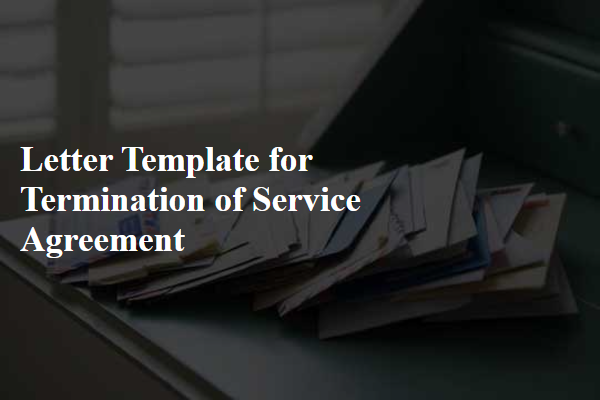
Clear Subject Line
A termination of service agreement can arise from various circumstances, such as mutual consent, breach of contract, or the completion of service terms. According to contract law, proper notification must be provided to the involved parties, which typically includes a clear subject line indicating the intent to terminate. Details essential for clarity include the effective termination date, reasons for termination, and any outstanding obligations, such as final payments or property returns. Proper communication ensures compliance with legal statutes and avoids misunderstandings.
Effective Date of Termination
The effective date of termination for the service agreement, established between the parties involved, is critical for ensuring clarity and compliance. This date marks the end of all obligations and responsibilities under the contractual terms. For example, if the agreement is terminated on October 15, 2023, all services must cease by this date. Notification to relevant stakeholders, including contractors and clients, must occur prior to this termination date to prevent potential disruptions. Additionally, any outstanding payments or deliverables should be settled before the effective termination date to avoid future disputes. Legal compliance with the terms specified within the service agreement is essential to prevent liability issues.
Reason for Termination
The service agreement termination often stems from non-compliance with terms outlined in contracts. Situations may include frequent service interruptions, inadequate response times exceeding industry standards (typically 24 hours), or failure to meet quality benchmarks established by regulatory bodies. Clients might also seek termination due to significant changes in corporate circumstances, such as mergers or financial restructuring affecting service viability. Other factors include unsatisfactory communication, which can lead to misunderstandings and unmet expectations, or a deliberate breach of contract terms, requiring legal rectifications. Ultimately, these reasons underscore the importance of maintaining clear and reliable service standards within contractual relationships.
Return of Property and Confidentiality
Termination of a service agreement often necessitates the return of property and the enforcement of confidentiality agreements. Upon termination, the returning party must ensure that all proprietary items such as equipment, documents, and intellectual property (including trade secrets) are retrieved. Specific dates (typically within 10 to 30 days post-termination) are stipulated for the return process. Confidentiality clauses remain effective, meaning sensitive information must not be disclosed post-termination. Legal repercussions for breach of confidentiality can result in significant penalties, reinforcing the importance of compliance in safeguarding both parties' interests.
Contact Information for Further Communication
Termination of service agreements often involves clear communication regarding contact details for any necessary follow-up or further discussions. Ensuring that relevant contact information is accurate facilitates a smooth transition. Typically, a designated representative from the company, such as a legal counsel or account manager, should be identified along with their phone number and email address. For example, if a company called Acme Corp is ending a service agreement with a vendor, the correspondence might include the contact information of Jane Doe, the Account Manager, at Acme Corp, reachable via phone at (555) 123-4567 or email at janedoe@acmecorp.com. Providing precise details ensures that all parties remain informed and can address any outstanding matters efficiently.
Letter Template For Termination Of Service Agreement Samples
Letter template of termination of service contract due to inadequate performance.
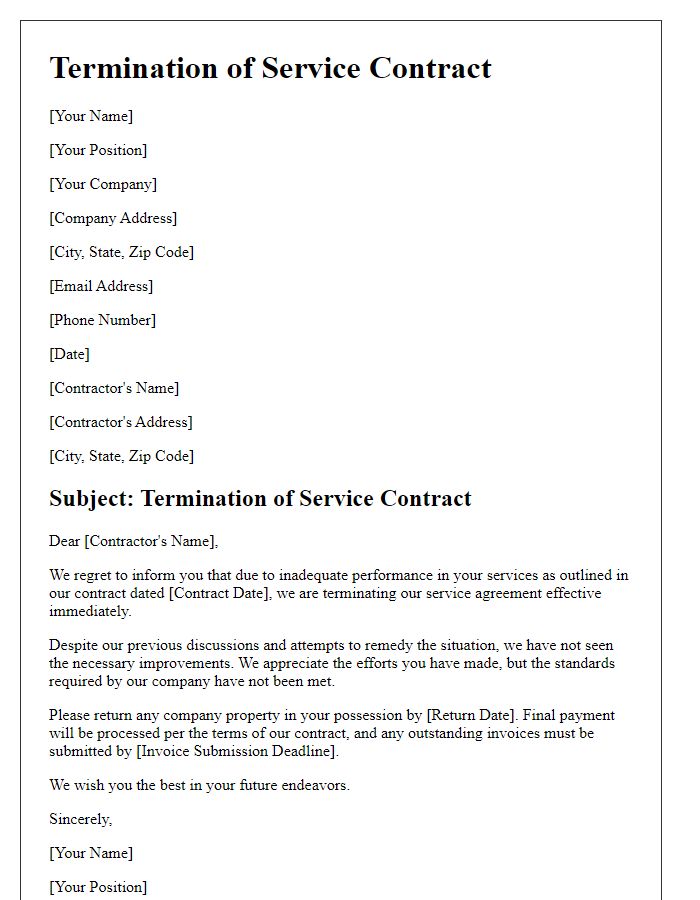
Letter template of termination of service agreement for breach of contract.
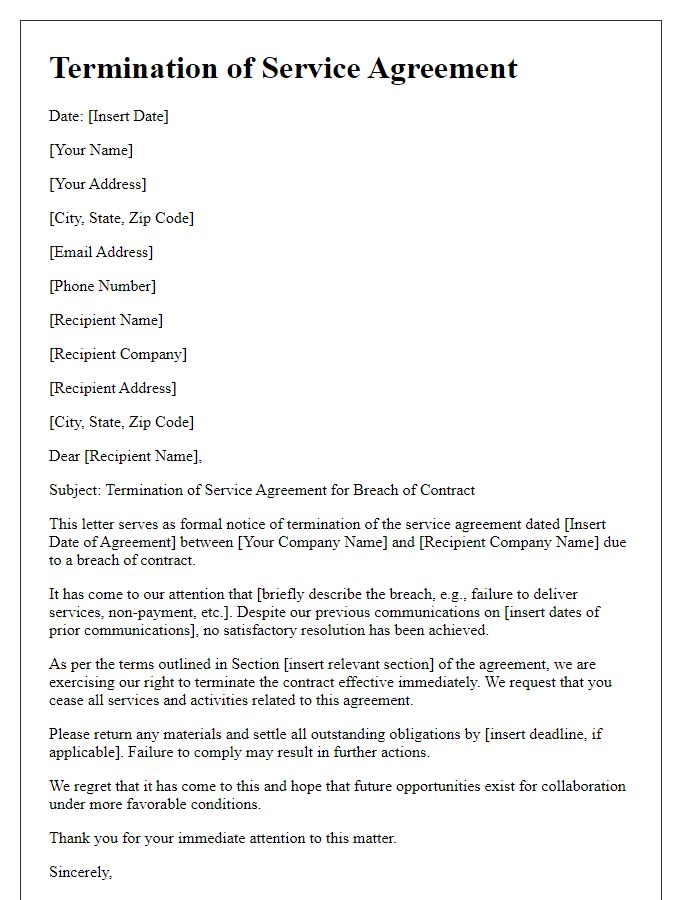
Letter template of termination of service arrangement for business restructuring.
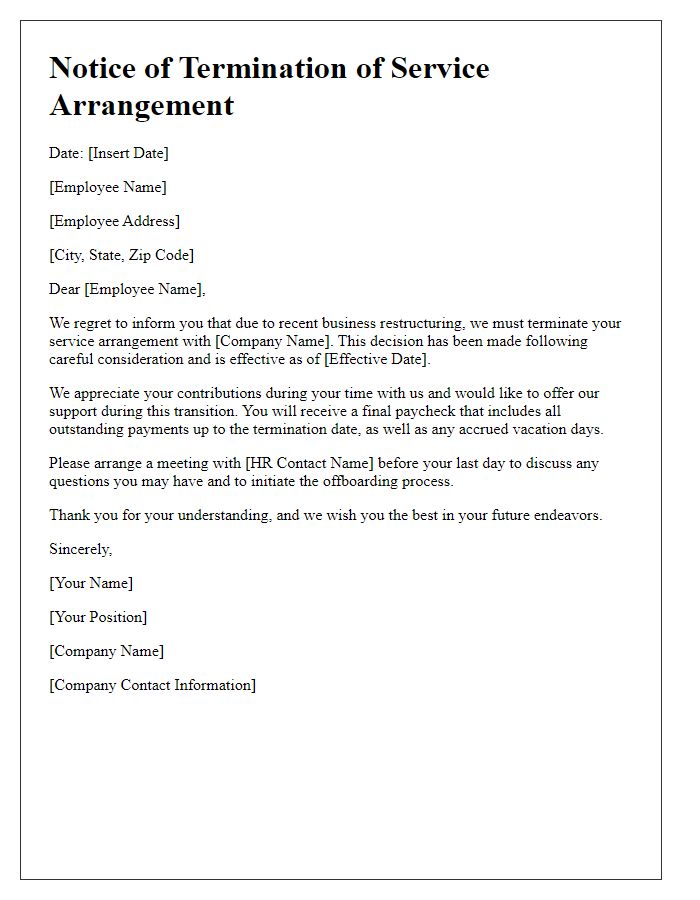
Letter template of termination of service contract due to unsatisfactory service quality.
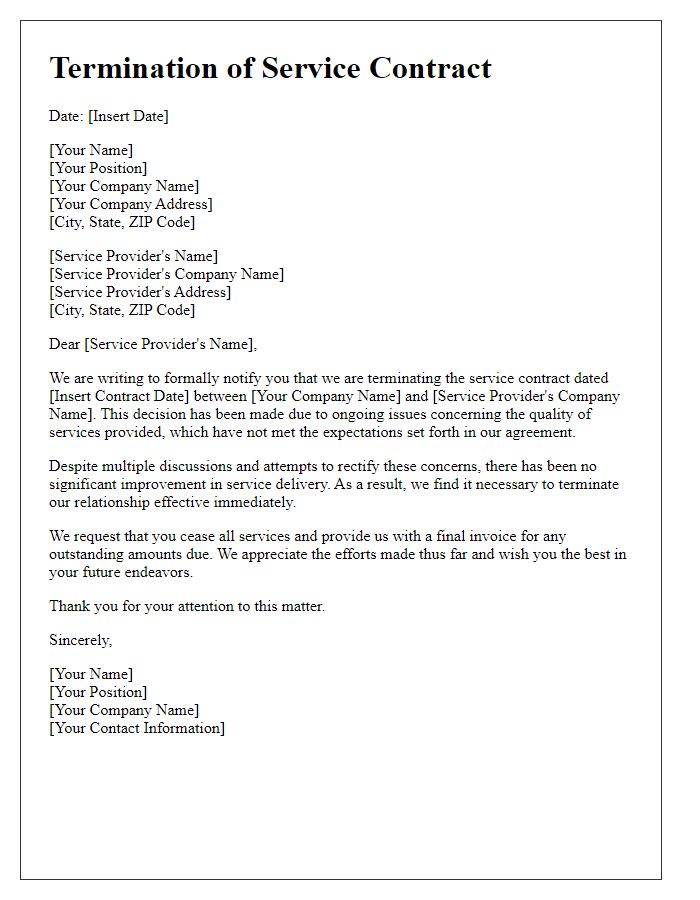
Letter template of termination of service contract for financial reasons.
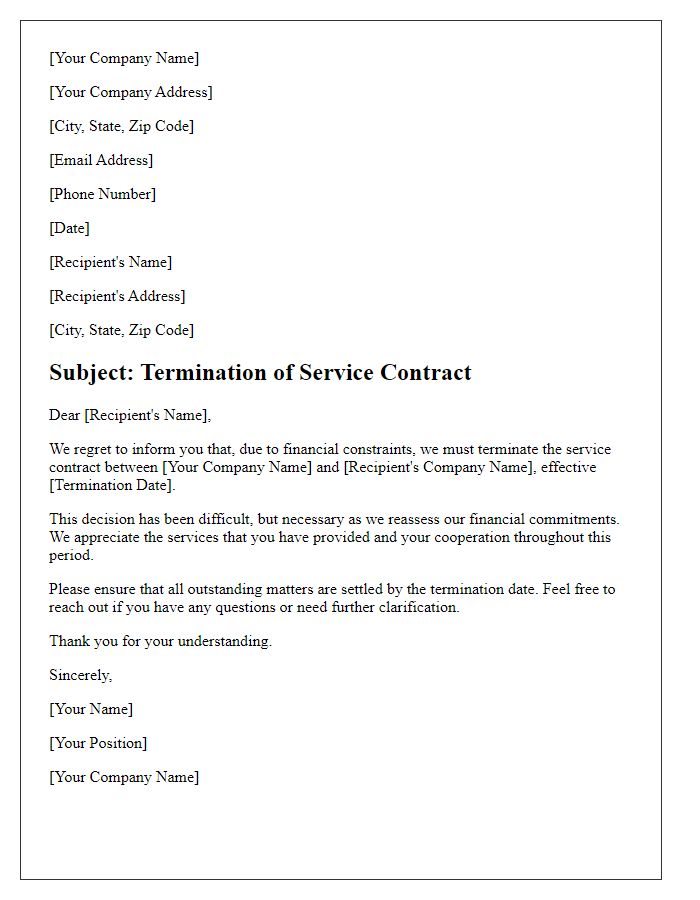
Letter template of termination of service agreement for lack of communication.
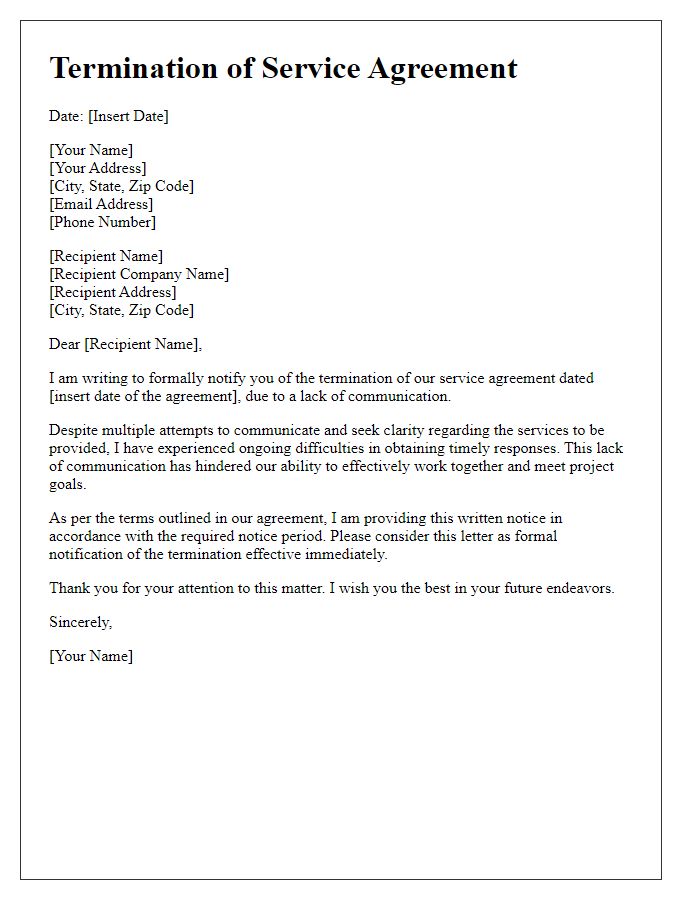
Letter template of termination of service arrangement due to operational changes.
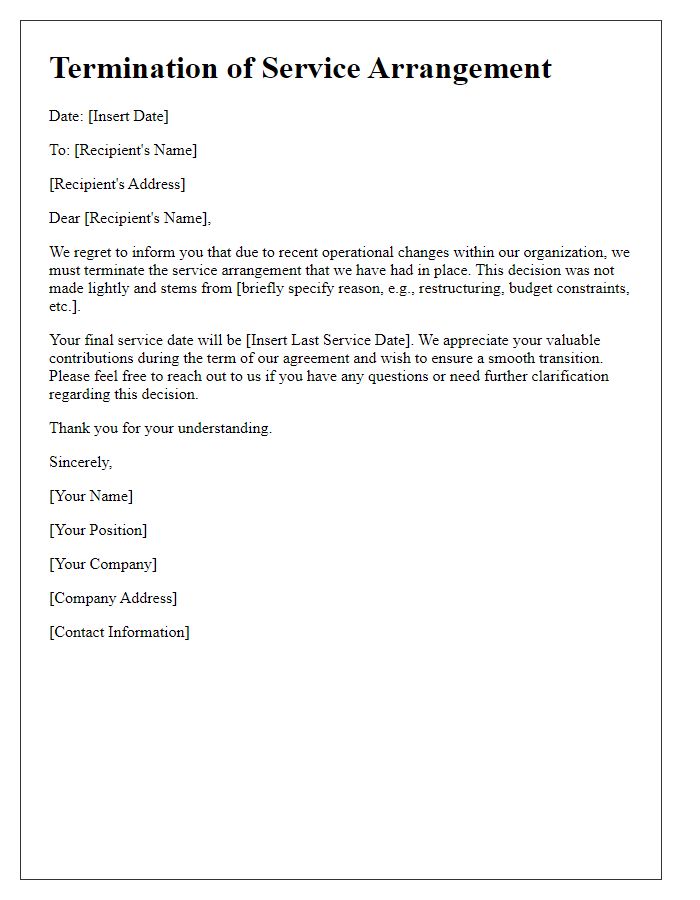

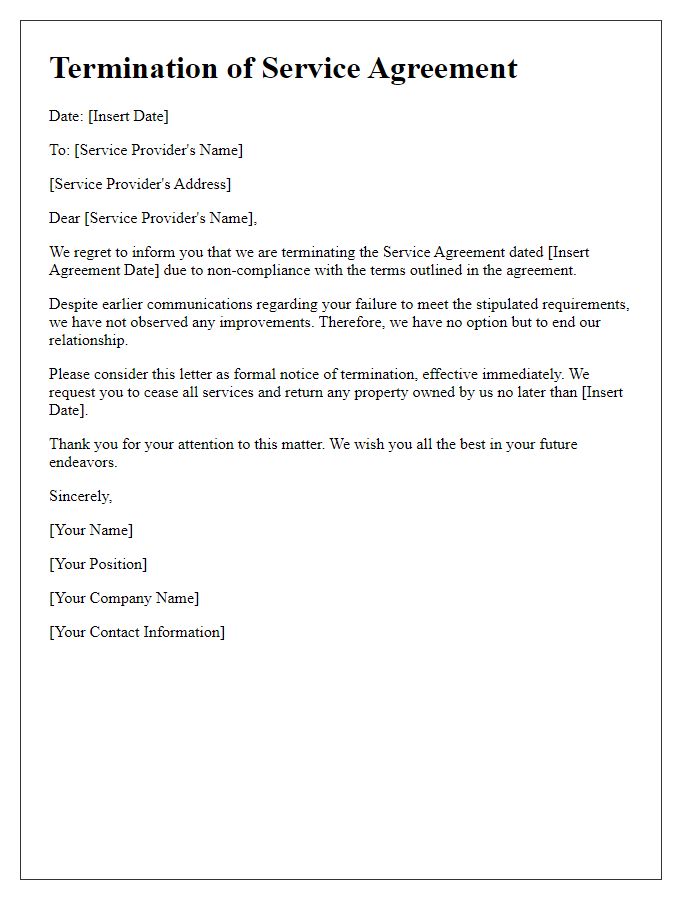
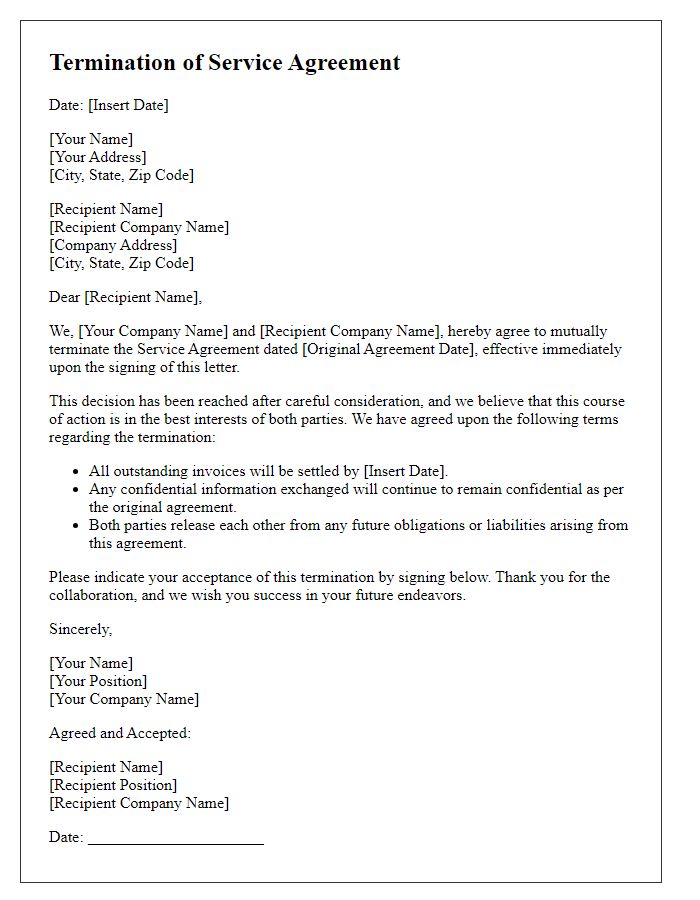
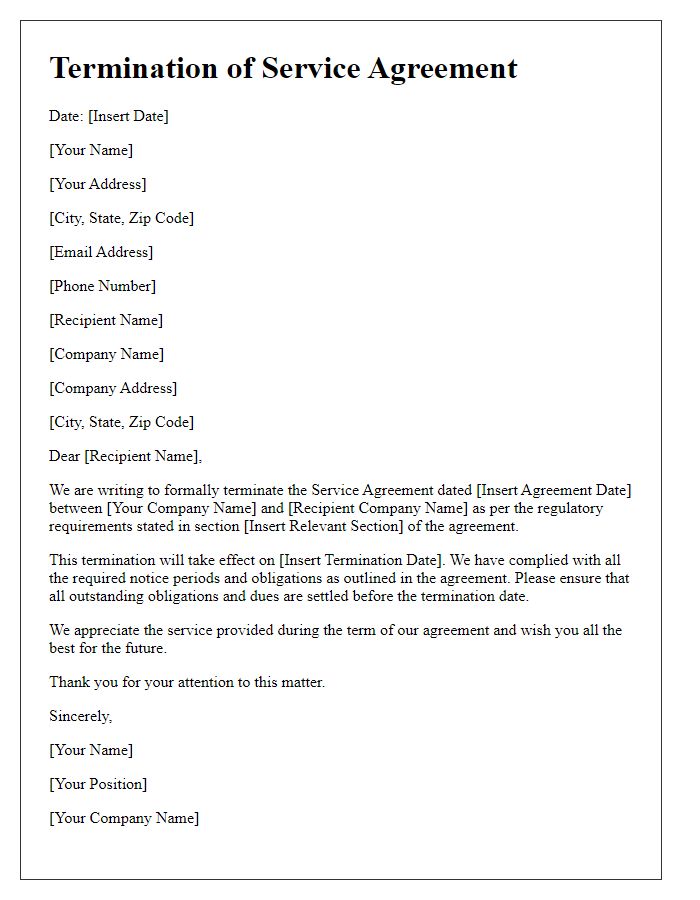

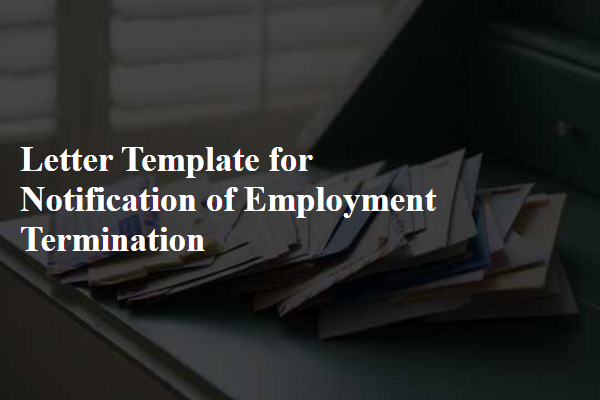
Comments